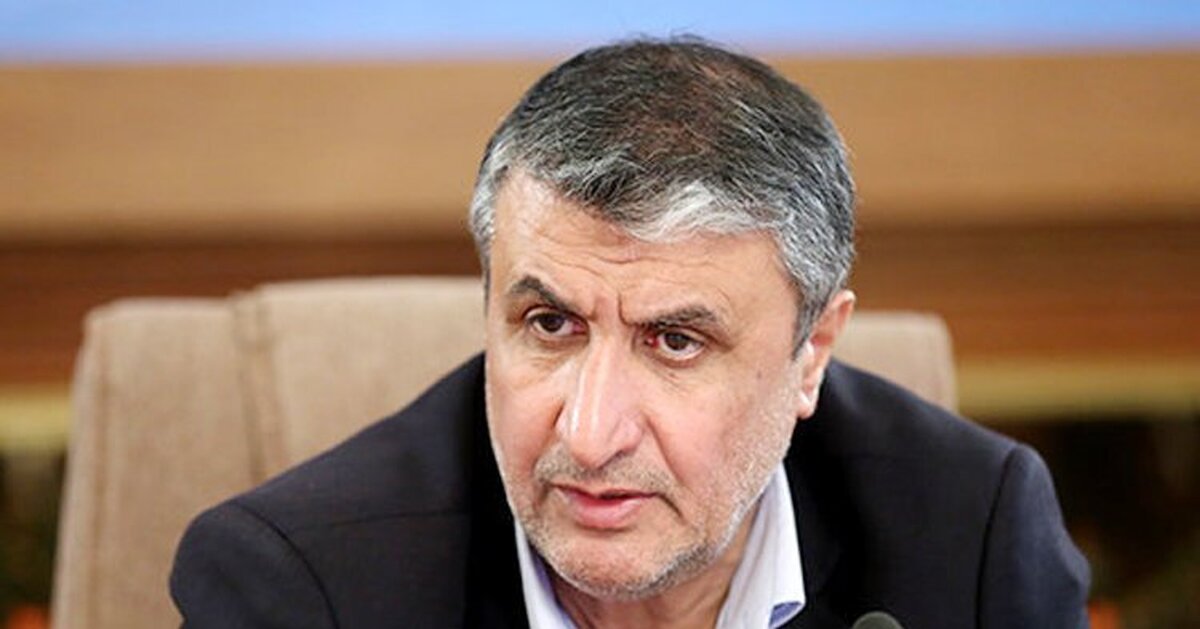
Iran's New Roads Minister Outlines Plans, Priorities
EghtesadOnline: Mohammad Eslami, the nominee of President Hassan Rouhani to take the helm of the Ministry of Roads and Urban Development, has outlined his plans and priorities in heading the ministry at a critical juncture for the country.
Last week, now-former minister, Abbas Akhoundi, said the president finally accepted his resignation at the fourth try and published his resignation letter.
In it, he decried local forces and thought processes that prevented him from implementing his envisioned changes and blocked free market tenets. Shortly afterwards, in an opinion piece, Akhoundi criticized the Rouhani administration for lacking a comprehensive macroeconomic plan.
Eslami has been introduced as Akhoundi's replacement and an imminent vote by lawmakers is expected to determine whether he will head the embattled ministry, Financial Tribune reported.
On Saturday, Eslami outlined his mission for the ministry in an interview with IRNA. They include following up on debts owed to contractors, organizing urban and rural areas, updating the comprehensive housing agenda of the government, crisis management, removing ineffective officials, fostering a green economy, supporting job creation, promoting industries and minimizing intervention in transportation prices and tariffs.
"Increased debts owed to contractors in the transportation sector by the government have resulted in stagnancy and unemployment," Eslami said, referring to an imbalance between the budgets and operations of the ministry as a major issue.
He said one of the most important responsibilities of the ministry is to foster an "Iranian-Islamic" culture and way of life to bestow urban and rural life with an identity.
The proposed minister said he supports electronic government, adding that employing information technology is vital to boost productivity and the level of services.
In the housing sector, Eslami said he will focus on organizing urban and rural areas, developing infrastructures and following up on completion of the controversial Mehr Housing Project initiated during the administration of former president, Mahmoud Ahmadinejad.
Creating harmony with other entities and organs in housing and preventing expansion of poor living conditions on the outskirts of major cities are among his other major plans for the sector.
"Increasing the purchasing power of the people, improving housing conditions and creating financing mechanism through Bank Maskan, designing sustainable mechanisms for offering housing financing and making investment, and revising the Comprehensive Housing Plan are among options considered for easing homeownership conditions," he said.
The ministerial nominee emphasized that devising facilities to better enable and attract private sector investments to support the overall plan to reinvigorate distressed areas is of utmost importance.
Eslami said the ministry under his watch will have a special look to compliance with global safety standards since about 1,600 Iranians now lose their lives each year in construction accidents while traffic accidents take thousands more.
"In this respect, providing safe housing, securing roads, reducing traffic accidents and better preparing to manage crises are among fundamentals considered for this ministry," he said.
He vowed that the ministry under his command will emphasize on giving work to an expert workforce. He said he would fire ineffective officials.
Eslami said he would be focused on green economy, adding that his efforts will include decreasing detrimental environmental effects, supporting sustainable management of forests, fighting activities that expand deserts and working closely with environmental authorities.
"Developing green economy in sustainable waste management in cities, fighting climate change and reducing carbon emissions by decreasing the overall age of transportation fleet and allocating facilities to generate sustainable energies will be among principles to which the Ministry of Roads and Urban Development will be committed," he said.
Commitments to Private Sector
On Saturday, Eslami participated in a meeting with top representatives of Iran Chamber of Commerce, Industries, Mines and Agriculture and other private sector figures.
He vowed that divesting all sorts of enterprise activities from the state sector under his watch to the private sector will be chief among his plans.
The nominee said the ministry needs to undergo a "structural reengineering" to eliminate all counterintuitive state activities with the aim of bolstering the private sector.
"Today, we need to build highways and railroads through public resources. Airports are no longer built with state budgets throughout the world, as the private sector implements such projects and profits off their added value," Eslami said, proposing that a joint government-private sector committee be formed to revise financing methods.
He further advocated the empowerment of private sector players in the housing and transit sectors.
The private sector, in turn, stated their own demands from the proposed minister.
President of ICCIMA Gholamhossein Shafei urged Eslami to pay more attention to the transit sector while also devising plans for upgrading the dilapidated transport fleet, high energy consumption, slow road transportation, damage inflicted on the environment and using private sector companies in the ministry's projects.
Fatemeh Moqimi, a member of the board of representatives of Tehran Chamber of Commerce, Industries, Mines and Agriculture who is also the CEO of an international transport and shipping company, called on the ministry to replace a portion of oil incomes with transit and transportation.
"We have yet to employ opportunities presented in the transportation sector in favor of our economy," she said.
Qobad Choobdar, a private sector player active in the construction and road development sector, demanded more attention toward the roads sector.
"There have been talks of excluding Iran from the Silk Road project. This is one of the challenges of the sector and we must not allow such an opportunity to go to waste," he said.
Dividing the roads and urban development ministry into two ministries as previously proposed, better managing energy consumption in the buildings and transportation sectors, and employing better financing tools were among other demands made by private sector representatives at the meeting.


